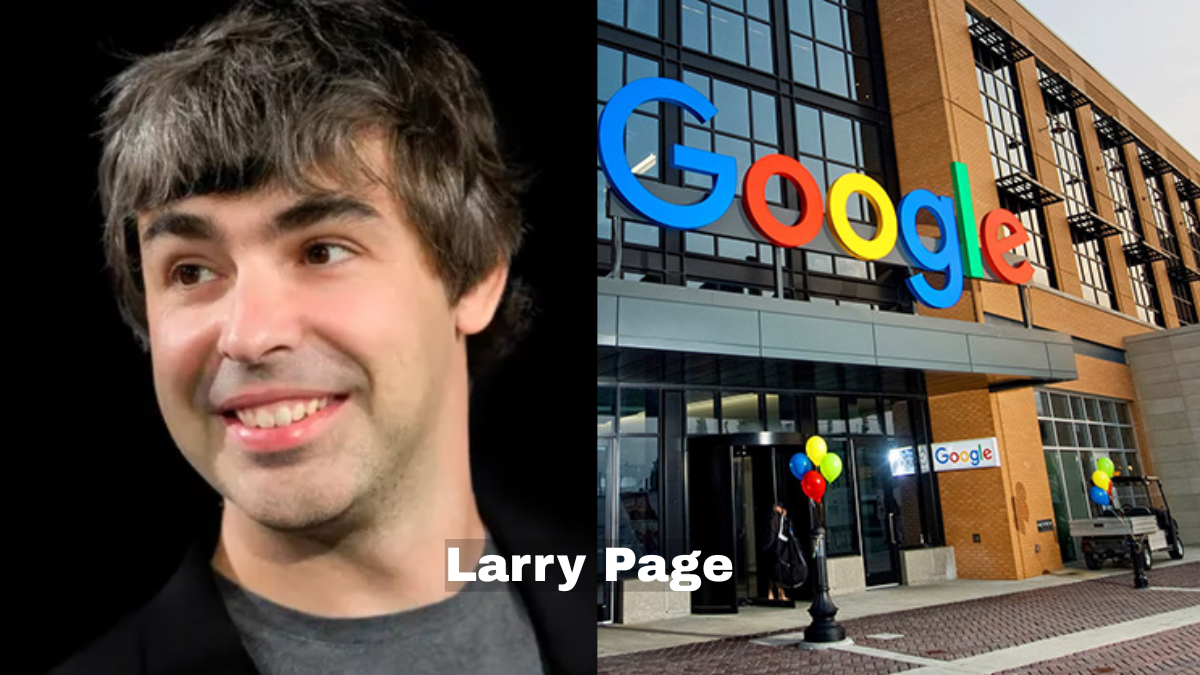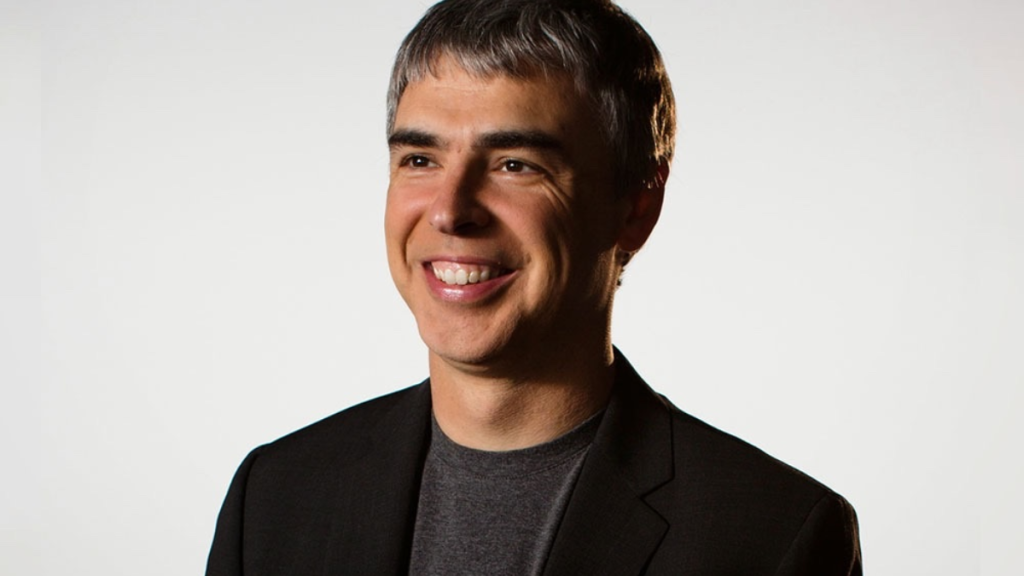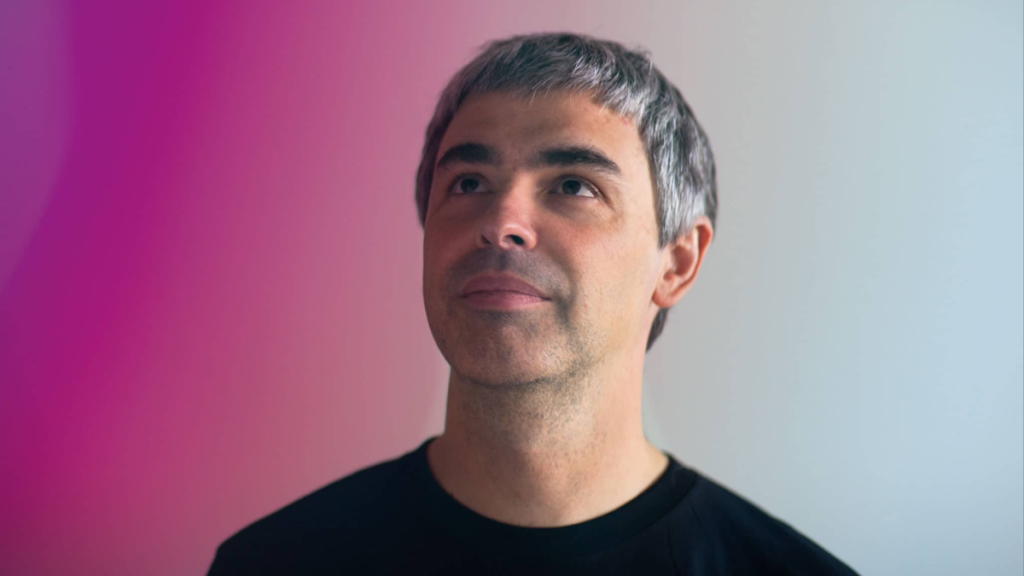
Advertisement
Larry Page is a name synonymous with innovation, digital disruption, and the dawn of a new era in information accessibility. As the co-founder of Google, Page’s contribution to the evolution of the internet is nothing short of revolutionary. His biography is a tale of relentless curiosity, bold ambitions, and an unshakable belief in technology’s power to transform the world. From the search engine he built in a dorm room at Stanford University to leading one of the world’s most influential companies, Page’s life is a masterclass in visionary entrepreneurship.
Born into a family of computer scientists, Larry Page was practically destined to disrupt the digital world. But what sets him apart isn’t just his technical brilliance—it’s his unique mindset.
“Always deliver more than expected,” he once said,
reflecting the essence of his career and character. This philosophy propelled him from academic prodigy to tech titan, and it continues to inspire generations of innovators.
As Google scaled new heights, Larry Page stayed focused on a future that many couldn’t yet imagine. Under his leadership, the company expanded beyond search to ventures like Android, YouTube, and even autonomous vehicles through Waymo. In 2015, Page stepped into a broader role as CEO of Alphabet Inc., the parent company of Google, emphasizing moonshot ideas and cutting-edge technology.
Yet, behind the scenes of billion-dollar breakthroughs lies a quiet, thoughtful man who values impact over fame. He once remarked, “If you’re changing the world, you’re working on important things. You’re excited to get up in the morning.” His story is not just about building a tech empire—it’s about reimagining the future.
Early Life and Education of Larry Page: From Michigan Roots to Stanford Brilliance
Larry Page was born on March 26, 1973, in East Lansing, Michigan—a town deeply intertwined with Michigan State University, where both his parents worked. His father, Dr. Carl Victor Page, was a pioneer in computer science and artificial intelligence, while his mother, Gloria Page, was a computer programming instructor.
“I grew up in a house full of computers and magazines about science and technology,” Page recalled in a rare interview. “I was really into inventing things.”
From a young age, Page was immersed in an intellectually stimulating environment that encouraged creativity and analytical thinking. His childhood home was more like a laboratory than a living room, filled with circuit boards, computer parts, and a library of academic journals. This environment not only sparked his fascination with computers but also laid the foundation for his problem-solving mindset.
Page attended Okemos High School, where he developed an early interest in technology and music. He played the saxophone and even considered a career in music composition before realizing his true calling was innovation. “Music helps me think,” he once said, emphasizing how his creative inclinations fed into his analytical mindset.
After high school, Page pursued a Bachelor of Science in computer engineering at the University of Michigan. There, he showcased his entrepreneurial spirit by building an inkjet printer out of Lego bricks to print large posters—an early sign of the unconventional thinking that would later define Google. “Inventing is not just about solving problems, it’s about looking at the world differently,” he said.
His academic path led him to Stanford University, where he began a Ph.D. in computer science. It was here that fate introduced him to Sergey Brin, a fellow graduate student. Their shared curiosity about the structure of the internet led to the creation of a research project initially called BackRub, which analyzed web links to rank pages based on relevance. This idea eventually evolved into Google.
Stanford played a pivotal role in shaping Page’s mindset. Surrounded by innovators, researchers, and future tech leaders, he absorbed the culture of experimentation and risk-taking. “You don’t need to have a 100-person company to develop that idea,” he famously said, encouraging entrepreneurs to start small and think big.
Page’s early life and education weren’t just stepping stones—they were the blueprint for his future. From Michigan’s academic setting to Stanford’s entrepreneurial spirit, every experience shaped his journey toward building one of the most transformative companies in history.

Founding Google: How Larry Page and Sergey Brin Revolutionized the Web
The story of Google’s founding is one of the most legendary in tech history—a blend of intellectual curiosity, calculated risk, and revolutionary innovation. When Larry Page met Sergey Brin at Stanford University in 1995, both were Ph.D. students in computer science, and at first, they didn’t exactly hit it off. However, their academic rivalry quickly turned into collaboration as they discovered a mutual interest in how information could be better organized and accessed on the internet.
Page had already been working on a thesis project that involved mapping the structure of the World Wide Web. Brin joined in, and together they developed a system that analyzed the backlinks of web pages, determining a page’s importance based on how many other pages linked to it. They called the project BackRub. This concept was a radical departure from traditional search engines that ranked pages solely on keyword frequency. “We wanted to build a search engine that could understand relevance, not just match words,” Page explained.
By 1998, the duo had renamed their project Google, a play on the mathematical term “googol,” which refers to the number 1 followed by 100 zeros—a nod to their mission to organize a seemingly infinite amount of web data. Their algorithm, known as PageRank, became the heart of Google Search and set it apart from every other search engine at the time.
The first version of Google was hosted on Stanford’s servers and quickly gained traction among users impressed by its accuracy and speed. Realizing its potential, Page and Brin dropped out of their Ph.D. programs to fully commit to building the company. They received their first $100,000 investment from Sun Microsystems co-founder Andy Bechtolsheim. “We knew we had something powerful, but we didn’t know how big it could get,” said Page in an early interview.
Google was incorporated on September 4, 1998, in a friend’s garage in Menlo Park, California—an origin story that would later become Silicon Valley lore. From there, the company grew rapidly, expanding its features, refining its algorithm, and outpacing competitors like Yahoo and AltaVista. Page’s emphasis on simplicity and user-first design became a key part of Google’s DNA.
“We want to make Google the third half of your brain,” he once remarked.
Together, Page and Brin didn’t just launch a product—they reinvented how the world accessed and interacted with information. Google soon became a verb, and the startup evolved into a global empire that touched everything from advertising and maps to mobile phones and cloud computing.
Their innovation marked the beginning of a new digital era, and at the center of it all stood Larry Page: a quiet disruptor with a bold vision for the future.

Legacy and Impact: Larry Page’s Role in Shaping the Future of Technology
Larry Page’s legacy extends far beyond founding Google—it is rooted in his relentless pursuit of ideas that shape humanity’s relationship with technology. As an innovator, entrepreneur, and quiet leader, Page has helped build not just a search engine, but a technological ecosystem that touches nearly every aspect of modern life.
After years as Google’s CEO, Page stepped down in 2001 to allow Eric Schmidt to lead the growing company. He returned to the CEO position in 2011 and eventually became the CEO of Alphabet Inc. in 2015, when Google restructured to focus on multiple ventures under one corporate umbrella. This move allowed Google to maintain its focus on search and ads while giving other experimental divisions like Waymo (self-driving cars), Verily (life sciences), and X (moonshot projects) room to breathe and innovate. “We’re still in the very early stages of what’s possible,” Page emphasized when announcing the restructure.
His vision has always been expansive. From artificial intelligence and machine learning to renewable energy and healthcare, Page has invested in areas that could revolutionize industries. Under his guidance, Google acquired Android, which became the world’s most-used mobile operating system, and YouTube, which redefined online video consumption. These moves didn’t just diversify Google—they changed how billions live, work, and communicate.
Page’s commitment to long-term thinking is one of his defining traits.
“Lots of companies don’t succeed over time. What do they fundamentally do wrong? They usually miss the future,” he once said.
This forward-thinking philosophy has influenced Google’s culture and global strategy.
He’s also known for his quiet, introspective leadership style—avoiding the limelight while empowering teams to innovate without constraints. Unlike flashier CEOs, Page let the products speak for themselves. As Sundar Pichai, his successor as CEO of Google and later Alphabet, noted, “Larry is the kind of leader who sets the bar so high, you push yourself harder just by working near him.”
While Page officially stepped down from day-to-day operations in 2019, his influence still permeates every layer of Alphabet. He remains a board member and a guiding force behind the scenes, often supporting bold ventures and backing disruptive startups through his investments.
Larry Page’s impact is measurable not just in profits and market share, but in possibilities. He challenged conventional limits and encouraged a mindset where innovation wasn’t optional—it was essential. His work has democratized access to information, pioneered AI research, and laid the foundation for a tech-powered future.
As Page once said, “You never lose a dream, it just incubates as a hobby.” For the millions whose lives have been touched by his innovations, that dream has become reality—and his biography stands as proof that ideas, when nurtured with vision, can truly change the world.
Larry Page’s journey from a curious child in Michigan to one of the most influential tech pioneers in history is a testament to the power of innovation, vision, and perseverance. With a passion for knowledge, an engineer’s mindset, and a futuristic outlook, Page didn’t just create a search engine—he redefined how the world accesses information, connects digitally, and imagines what’s possible through technology.
As the co-founder of Google and the architect behind Alphabet Inc., Page exemplified a rare combination of technical brilliance and strategic leadership. His decisions—from developing the PageRank algorithm to acquiring Android and YouTube—reshaped industries and paved the way for today’s digital ecosystem. His forward-thinking approach to moonshot projects like self-driving cars and life-extension technologies further highlights his belief that technology should solve humanity’s biggest challenges.
Though soft-spoken and often media-shy, Larry Page’s impact has been anything but quiet. He inspired a generation of entrepreneurs to think big, embrace risks, and never settle for incremental progress. “If you’re not doing some things that are crazy, then you’re doing the wrong things,” Page once said—and that daring philosophy has echoed throughout Google’s DNA and Silicon Valley at large.
Even after stepping down from day-to-day operations, his legacy continues to thrive in the innovations and bold ideas that stem from the empire he helped build. For aspiring visionaries and dreamers, Larry Page’s biography is more than a chronicle of tech success—it’s a blueprint for thinking beyond limits and building a future that once seemed impossible.
In a world driven by algorithms, data, and digital dreams, Larry Page’s influence is both foundational and everlasting—a quiet visionary who turned a garage project into a global revolution.
